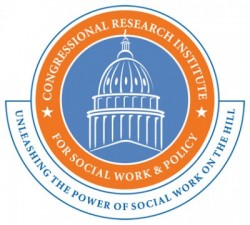Approximately 80 Americans die from an opioid overdose every day. That amounted to 29,467 people in 2014. Many of these deaths were preventable but the resources needed to tackle the growing opioid epidemic have yet to be appropriated by Congress. The Senate passed S.524—the Comprehensive Addiction and Recovery Act (CARA)—on March 10, 2016 by a vote of 94 to 1. The House passed its version of CARA on Friday with a vote of 400-5. Clearly Congress is feeling the heat to finally address this crisis. The two legislative bodies will conference to try to reach a consensus on a final version that will be sent to President Obama for his signature. The bill was introduced in early February, 2015. Despite the urgency of the opioid crisis, it has taken longer than a year for these bills to work their way through the legislative processes.
Needing to get something done with elections approaching rapidly, House Republicans pushed through a potpourri of 18 measures last week that were crafted to address the crisis. Speaker Ryan took time from dealing with Donald Trump to address the public about the urgent need to respond to the opioid crisis and how pleased he was his colleagues in the House had responded. He failed to mention they had not appropriated the funds needed to do the work. The bills authorize about $100 million but those proposed funds must now go through the appropriations process before they are available. That could take month with the summer recess looming. Many experts say the level of authorized funds are inadequate to meet the challenge. President Obama submitted a request for $1.1 billion in additional funding in February.
 There has been much talk about the hypocrisy of the government’s response to the new opioid crisis that is impacting mostly white communities. However there are differences this time around that should be noted. Back in the 1960s when heroin was ravaging black communities and in the 1980s when crack cocaine was wreaking its havoc, there was a heavy-handed law enforcement response—including New York Governor Nelson Rockefeller’s draconian drug laws, presidential candidate Richard Nixon’s declaration of a “war on drugs,” and a 100 to 1 punishment disparity for crack possession over cocaine—that resulted in hundreds of thousands mostly black men being locked behind bars.
There has been much talk about the hypocrisy of the government’s response to the new opioid crisis that is impacting mostly white communities. However there are differences this time around that should be noted. Back in the 1960s when heroin was ravaging black communities and in the 1980s when crack cocaine was wreaking its havoc, there was a heavy-handed law enforcement response—including New York Governor Nelson Rockefeller’s draconian drug laws, presidential candidate Richard Nixon’s declaration of a “war on drugs,” and a 100 to 1 punishment disparity for crack possession over cocaine—that resulted in hundreds of thousands mostly black men being locked behind bars.
At that time, these addicted souls were among society’s most undervalued citizens—black men and hippies—who were targeted for their voluntary use of opiates and hallucinogens. Disparagingly labeled addicts and dopeheads, politicians saw them as useful fodder to embellish their “tough on crime” credentials. Their addictions were viewed as the result of personal moral turpitude. Many careerist politicians had no problem sacrificing these perceived dregs of society at the altars of political expedience. In black neighborhoods, citizens were fighting back against drug dealers who were ferociously trying to get anyone gullible enough “hooked” on drugs. Curtis Mayfield’s hit song, “Pusherman,” was an ode to the inner-city struggle against drug dealers.
Americans who are overdosing on opioids today are mostly victims of an out-of-control prescription pain killer binge. The sale of prescription pain killers in the U.S. skyrocketed from 76 million in 1991 to 219 million in 2011. Unscrupulous pharmaceutical companies, led by Purdue Pharma, were among the prime movers behind the explosion in the use of opioid prescription drugs. Purdue paid $600 million in fines in 2007 for misbranding and promoting OxyContin as non-addictive. They are facing a $1 billion lawsuit by the state of Kentucky. These were pushermen in Brooks Brothers suits. When the feds cracked down on the explosive use of opioid prescription drugs, users were able to find a cheaper and abundantly available substitute in heroin. Faced with a restricted supply of prescription opioids and a stagnating economy, heroin users in the United States nearly doubled from 373,000 in 2007 to 669,000 in 2012.
While it should be noted that the circumstances of today’s epidemic are different, it in no way justifies the vile policies of the past that destroyed or severely harmed millions of lives. Congress needs to get to work on reforming our criminal justice system and do what it can to mend casualties of the war on drugs. But little is being done. Congress needs to move quickly on getting the CARA to the President’s desk. They need to do this by Election Day or face the wrath of American voters.
The post Congress is Dallying While Americans are Dying appeared first on Congressional Research Institute for Social Work and Policy.
Written By Charles E. Lewis Jr., Ph.D
Congress is Dallying While Americans are Dying was originally published @ Charles Lewis – Congressional Research Institute for Social Work and Policy and has been syndicated with permission.
Our authors want to hear from you! Click to leave a comment
Related Posts






